Can I use files with gradients or semi-transparency?
Yes. Our newly improved DTG printing technology can achieve both gradients and semi-transparency.
What should I do if I see a “Low resolution” alert?
There are two solutions if you see a "Low resolution" alert.
- Submit a new file at a minimum resolution of 75 DPI (150 DPI or above is recommended).
- Reduce the image size in our Design Creator until the "Low resolution" alert is removed. However, the design may not look the way you want after resizing.
How do I add text to a product?
To start, you must first choose a product, open our Design Creator, and select a print area where you want to add text. There are two ways to add text to a product.
One way is to click the "Add Text" button above the Design Creator palette and enter your text directly in the textbox. You can freely adjust the text size and style in the tool palette.
Another way is to use design software(Photoshop, Illustrator, etc.) to design your text and save the file in PNG or JPG format. Then press "Add image" in PODpartner's Design Creator, upload the file you just saved, and adjust the image size and position the way you want.
How many print areas does Design Creatorr support?
Our Design Creator supports a maximum of 18 print areas on a garment. You can add up to 7 designs on the front/back side.
Can I edit a design I previously created?
Yes. You can go to Dashboard, click on "Product Templates", find the template you want to modify, click the "Edit" button to access the Design Creator, and start editing the template.
Please note that if the template has already been applied in an unpaid order, you cannot directly edit it. However, you can duplicate it and edit the copy.
How will my design look in different garment sizes?
Your design will look the same no matter the garment size, because the actual print size always remains proportional to the garment size.
Do I need to follow any content rules?
We encourage creativity and personality on the premise of originality and respect for the law. Please keep in mind that you are solely responsible for the content in the print files you upload. Any print files pertaining to the following content violations may be reviewed or removed permanently.
1. Intellectual property infringement
Intellectual property infringement mainly consists of trademark/patent/copyright infringement and violation of publicity rights. The content you submit to PODpartner must be original and comply with intellectual property law.
2. Illegal content
Content containing images or depictions of child abuse, child pornography, or any form of obscenity is not tolerated; content that promotes crime, violence, terrorism, or other harmful activities is also prohibited.
3. Hateful content
We do not allow any content expressing hatred towards or threatening other people based on their race, age, gender, gender identity, ethnicity, national origin, sexual orientation, religion, disability, or serious disease.
4. Infringement of privacy
You may not submit any content that contains another person’s sensitive personal information, including but not limited to their name, picture, confidential scripts, or depiction of their private affairs unless you have their consent.
What is Custom Layer? How do I use it?
Custom layers may come in handy if your store accepts customer requests for changing the product design within specified print areas.
When orders with such requests are imported to PODpartner, you won't have to recreate the product templates. You can simply replace or edit the custom layer of the product under its order details and proceed to payment. This will make the order processing much more efficient.
1. How do I create a custom layer?
Be sure to activate Custom Layer before you publish a product to your online store.
Once you add an image to the design canvas, an “Activate customization” button will appear under the tool palette, and you can turn the image into a custom layer by clicking the button. Please note that a custom layer is only linked to one image, meaning only that image can be changed when you edit its linked custom layer. You can save no more than three custom layers for a product.
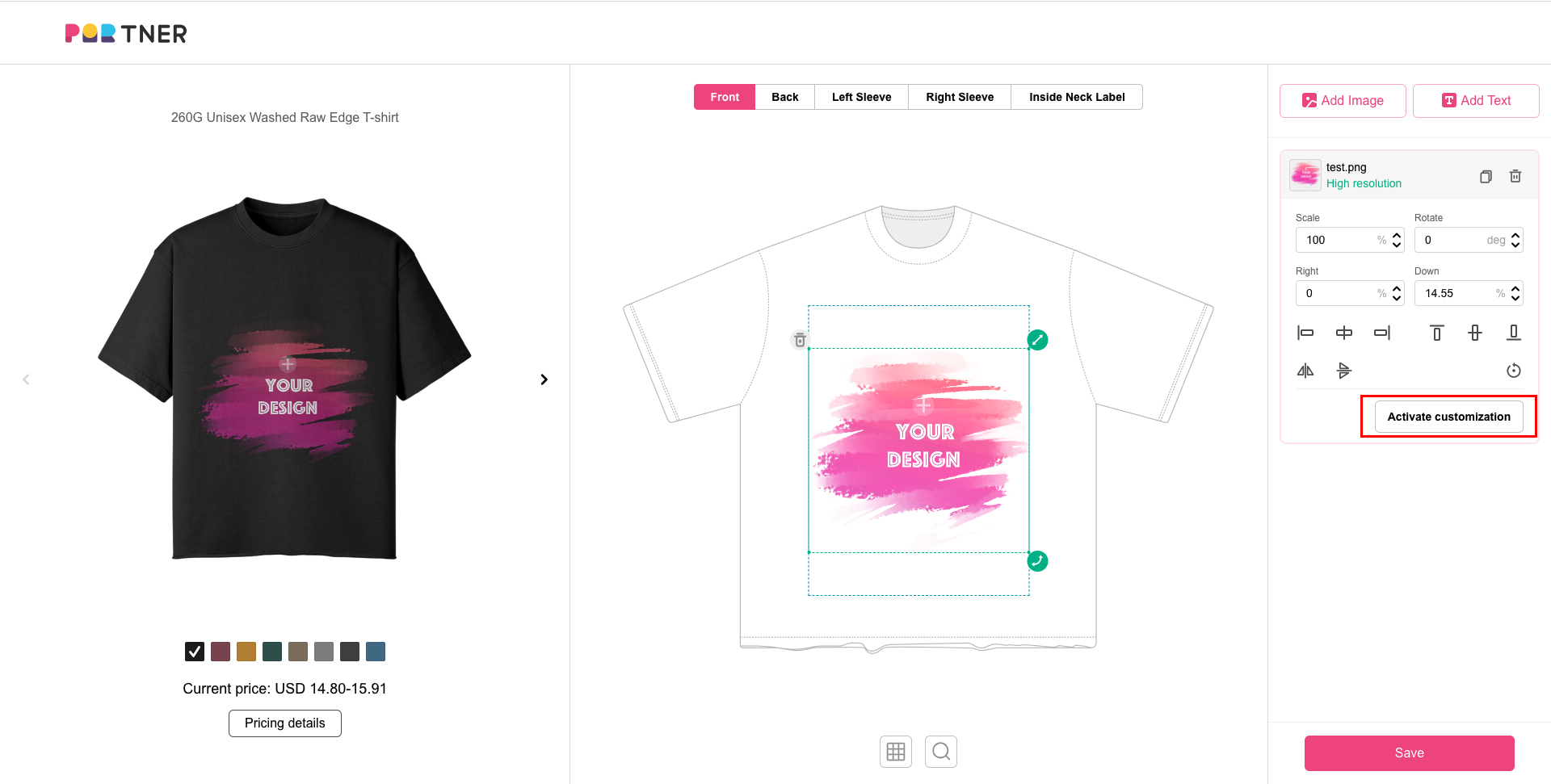
You can name the custom layer so it can be easily identified.
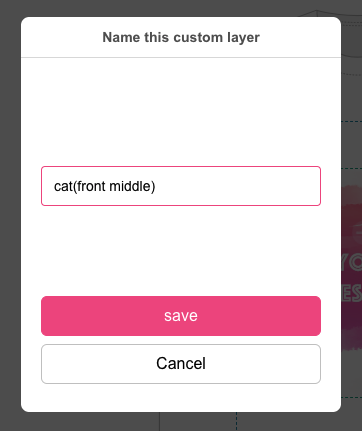
2. How do I know if a product template contains a custom layer?
If a product template contains a custom layer, its thumbnail preview will be distinguishable from regular product templates by showing a customization symbol on the top right.
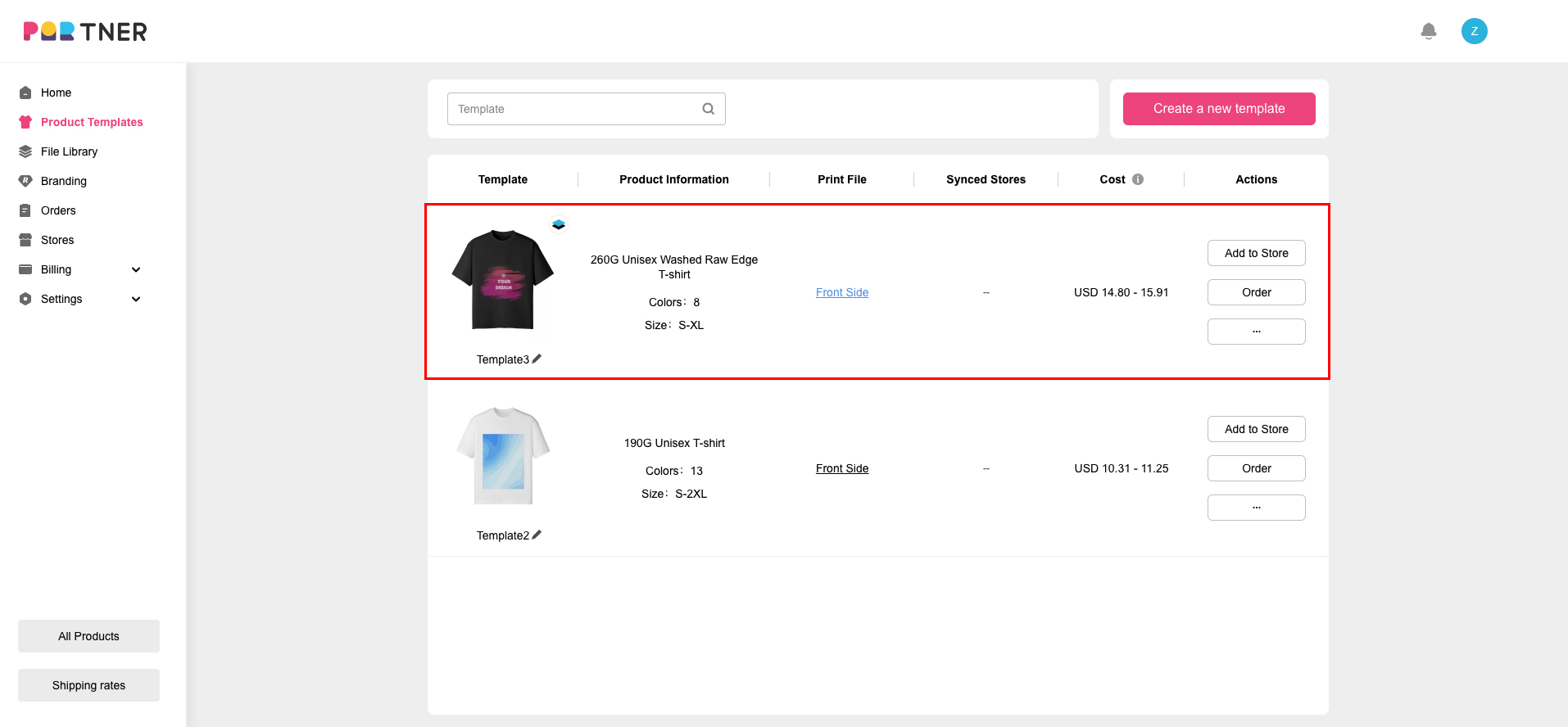
3. What does the order status look like if a custom layer is involved?
If a product template containing custom layers is converted to an order, its order status on the Order page will be “Customization”.
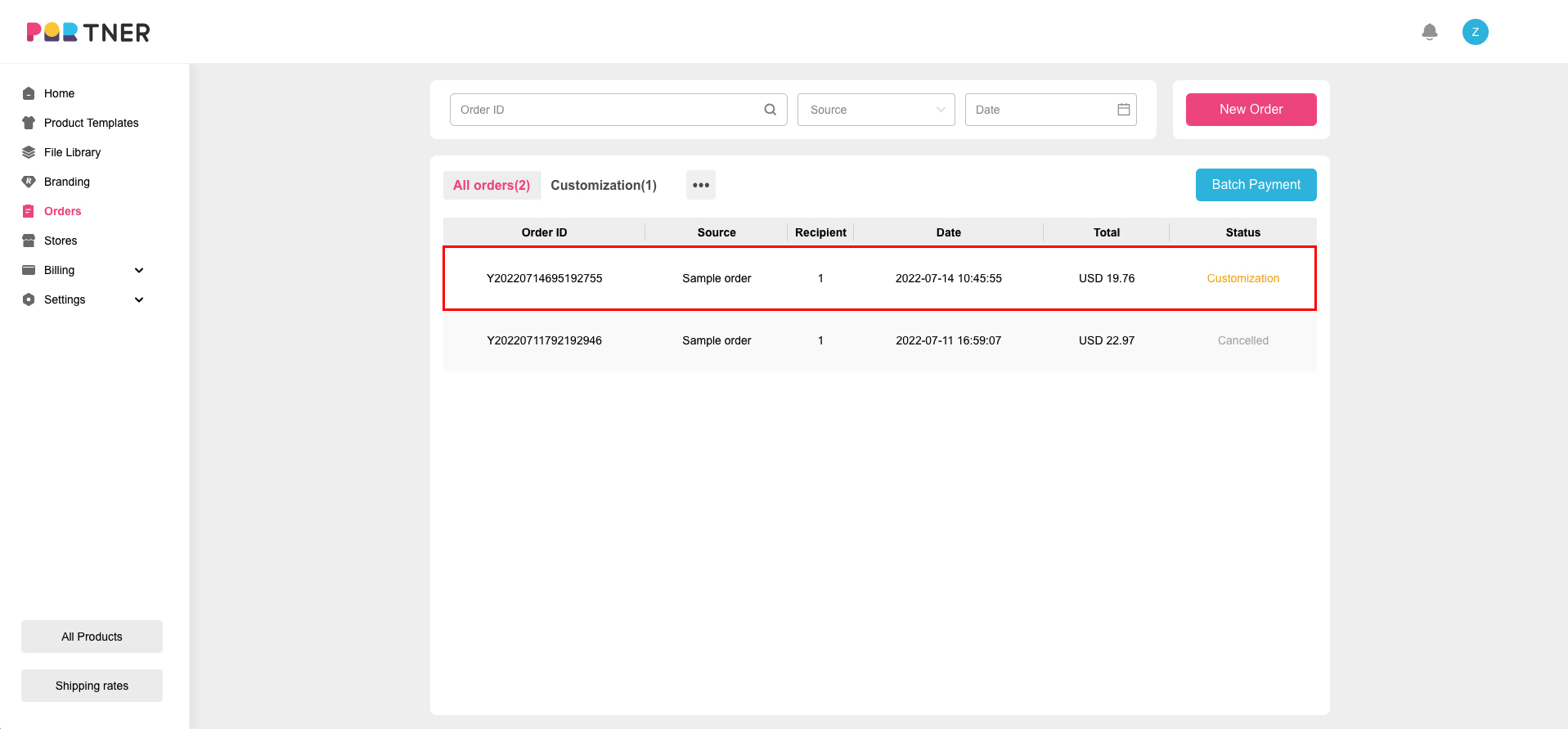
4. How do I replace a custom layer?
Click on the order to enter Order details, find the custom layer to be replaced under “Edit layer”, click on its name and upload a new image.
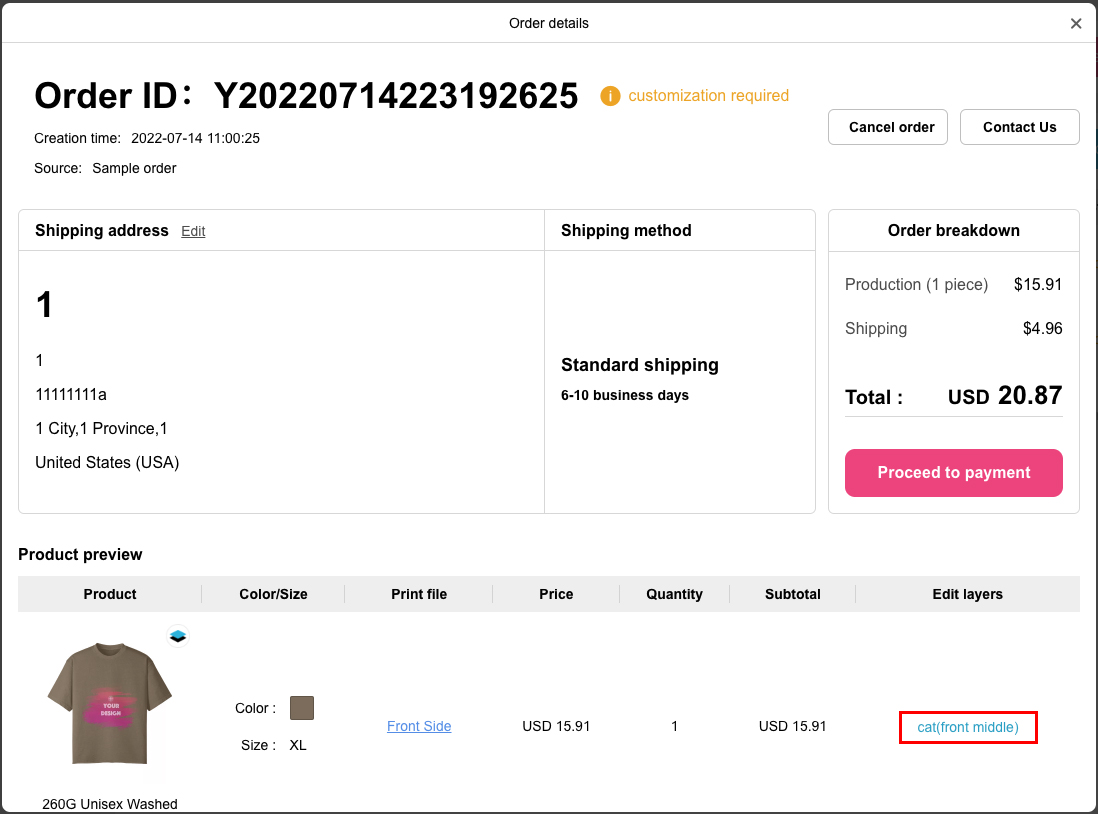
You can preview the updated layer in the preview popup window. If you’re not satisfied with the result, you can click on Edit button to adjust the position and size of the image. Thus the layer replacement will be completed. After the replacementt, a magnifier button will show up next to the custom layer’s name. At this point, if you want to check the result of your actions, simply click this button.

5. Payment
Orders containing custom layers will require your confirmation; therefore, they cannot be paid automatically or in bulk. If you need to edit a custom layer, you should do it before paying for the order. In case of any issues occurring after the payment, please reach out to our customer service.
How do I manage my print files?
You can view and manage all your print files in File Library.
Upload files
You can click the “Upload" button to upload a single file or batch files. Once uploaded, these files will appear in the "My Files” section.
Manage files
If you mouse over an uploaded file, you will see a checkbox appears in the top left corner of the image. Choose a file by ticking the box, then you can move it to another folder, download it to your computer, or delete it. You can also rename the file by clicking on the original name under the image.
Create a new folder
On the “File Library” page, click the "New Folder" button to create a new folder. The new folder can be found in the "My Folder" section.
Manage folders
When you hover your cursor over a folder, two small icons will pop up in the top right corner, meaning you can either rename the folder or delete it.
Upload files to a particular folder
Open a folder, click on “Upload", and add files to this folder.
Which color profile should I use for my files?
Understand the difference between RGB and CMYK
RGB stands for Red, Green, and Blue. It is used when images are displayed on electronic screens(computers, digital cameras, and so on).
CMYK stands for Cyan, Magenta, Yellow, and Black. It is the color scheme used for printing physical items.
Naturally, there is a small color change when RGB colors are converted into CMYK colors.
How to prevent unwanted surprises
Before printing, your print file will be converted into CMYK color mode, which could result in a slight difference between what you see on your screen and the actual printed product.
If your print file was created in RGB color mode, we recommend you use a design app such as Photoshop to convert it into CMYK color mode and preview the difference.